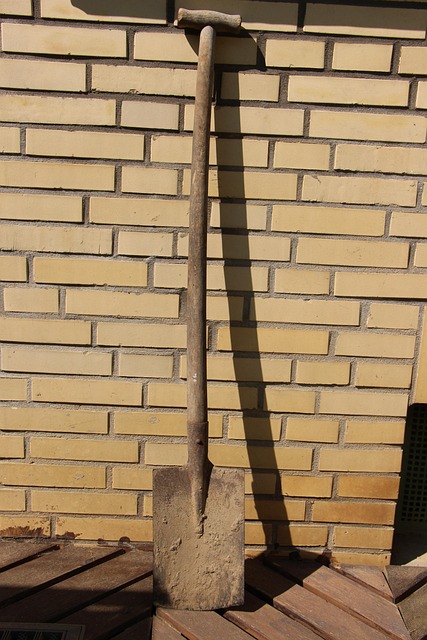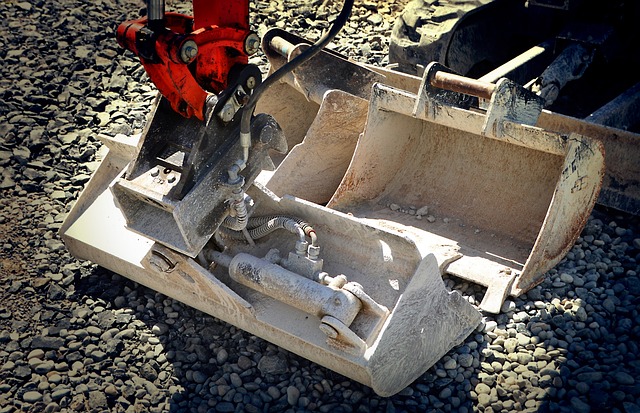Regular, comprehensive foundation inspections are crucial for identifying potential issues early, preventing costly repairs, and ensuring your home's structural integrity. Advanced techniques and tools detect cracks, uneven floors, moisture intrusion, and other signs of damage. These inspections guide tailored repair strategies using innovative non-invasive solutions like helical piles and push piers. Choosing a reputable foundation repair company with certifications and positive reviews ensures effective, long-lasting results. A detailed inspection before, during, and after repairs is key to catching subtle problems and maintaining your home's stability.
“Uncovering the fundamentals of solid homes starts with a comprehensive foundation inspection. Foundation problems, though often overlooked, can have severe consequences on structural integrity and property value. This article guides you through the intricacies of foundation repair, from identifying common issues to exploring advanced technology and traditional methods. Learn about the importance of choosing the right company and understanding warranty coverage for long-term stability. By delving into real-world case studies, homeowners can make informed decisions regarding this crucial investment.”
Understanding Foundation Problems: Common Issues and Their Impact

Foundation issues can manifest in various ways, often going unnoticed until significant damage occurs. Common problems include cracks in the foundation walls, uneven floors, doors or windows that stick or swing, and visible gaps around doors and windows. These issues may be caused by poor soil conditions, improper construction, or changes in weather patterns, such as prolonged drought or heavy rainfall.
A thorough foundation inspection is crucial to identifying these problems early on. Professional inspectors use advanced techniques and tools to assess the structural integrity of your home’s foundation, pinpointing even the smallest cracks or signs of settlement. Regular inspections can help prevent costly repairs down the line and ensure the safety and stability of your home for years to come.
The Role of a Comprehensive Foundation Inspection

A comprehensive foundation inspection is a crucial step in ensuring your home’s structural integrity and longevity, especially when dealing with potential warranty claims. This meticulous process involves a detailed evaluation of every aspect of your home’s foundation, from cracks and settlement to moisture intrusion and overall stability. During an inspection, skilled professionals use advanced tools and techniques to identify even the smallest anomalies that could indicate a need for repair.
By conducting thorough foundation inspections, homeowners can gain valuable insights into their property’s condition, enabling them to address issues proactively. This proactivity is essential in maintaining a solid warranty claim, as it demonstrates due diligence on the part of the owner. Additionally, early detection of foundation problems allows for more effective and cost-efficient repairs, preventing further damage that could compromise the structural integrity of the home.
What to Look For During a Foundation Assessment

When conducting a foundation assessment, several key elements should be scrutinized to ensure comprehensive coverage during a full warranty foundation repair. The first step is to visually inspect the foundation for any visible signs of damage or cracks, which could indicate structural instability. Pay close attention to corners, joints, and walls, as these areas are particularly susceptible to shifting over time. Look for uneven floors, stuck doors or windows, and any bulging or leaning structures, as these are red flags that require immediate attention.
Additionally, a thorough examination should include assessing the soil conditions surrounding the property. Uneven settling often results from poor soil compaction or nearby bodies of water. Checking for moisture intrusions in crawl spaces or basements is also vital, as it can lead to serious foundation issues over time. During the inspection, experts will also take measurements and use advanced technology like ground-penetrating radar (GPR) to gain a deeper understanding of the substrate beneath your home’s foundation.
Advanced Technology in Foundation Repair: Non-Invasive Solutions

The world of foundation repair is witnessing a technological revolution, offering non-invasive solutions that are both efficient and effective. Advanced technology has enabled professionals to perform comprehensive foundation inspections using remote sensing equipment and ground-penetrating radar, allowing for accurate assessments without causing any damage to the structure. This approach is particularly beneficial in identifying subtle issues early on, preventing further deterioration.
Non-invasive methods have also streamlined the repair process, minimizing disruption to the surrounding area. Technologies like helical piles and push piers provide stable support without extensive excavation or demolition. These innovative solutions are transforming the way foundation repair is conducted, ensuring structural integrity while preserving the beauty and value of properties across various landscapes.
Traditional Foundation Repair Methods: A Step-by-Step Guide

Traditional foundation repair often involves a meticulous step-by-step process, beginning with a comprehensive foundation inspection. This critical initial phase entails a thorough evaluation of the structure’s overall health and identifies any signs of damage or instability. During this inspection, experts carefully examine the walls, floors, and ceilings for cracks, uneven surfaces, or other anomalies that could indicate foundation problems.
Subsequent to the inspection, the repair process may include various methods such as underpinning, where additional support is installed beneath the foundation to stabilize it. Another common technique is piecing, which involves replacing damaged sections of the foundation with new concrete or steel supports. The choice of method depends on the extent of damage and the specific needs of the structure, ensuring long-lasting stability and safety for the building.
Choosing the Right Foundation Repair Company: Key Considerations

Choosing the right foundation repair company is a crucial step in ensuring your home’s structural integrity and longevity. When facing foundation issues, it’s essential to consider several key factors. First, look for a company that offers comprehensive services, including detailed foundation inspections. A thorough inspection provides a clear understanding of the problem and helps tailor the repair solutions accordingly. This not only saves time but also guarantees effective and efficient solutions.
Additionally, verify their expertise and experience in handling various foundation problems, such as settlement cracks, uneven floors, or bowing walls. Check for certifications and licensing to ensure they meet industry standards. Reputable companies should provide transparent estimates, ensuring you understand the scope of work and associated costs. Reviews from previous clients can also offer valuable insights into their professionalism, communication, and overall project management.
Warranty and Aftercare: Ensuring Long-Term Stability

When investing in foundation repair, it’s crucial to consider the aftercare and warranty offered by the service provider. A comprehensive warranty is a sign of confidence in their work and ensures long-term stability for your home. This covers any potential issues that may arise due to defective materials or workmanship during the initial repair process.
A professional foundation inspection before, during, and after repairs is essential. It helps identify subtle issues that might go unnoticed otherwise, ensuring every aspect of the foundation is addressed. Regular maintenance and inspections following the repair are also vital to catch any emerging problems early on, preventing further damage or costly renovations down the line.
Case Studies: Successful Foundation Repair Projects

In many instances, successful foundation repair projects begin with a thorough foundation inspection. Skilled contractors employ advanced techniques and tools to assess the extent of damage or settlement. These inspections often reveal crucial data about soil conditions, structural elements, and potential causes of foundation issues. For example, a recent case study highlighted a residential property experiencing severe cracking and uneven floors. Through meticulous inspection, experts determined that the problem stemmed from poor soil compaction and excessive moisture absorption.
The repair process involved a multi-step approach: deep underpinning to stabilize the existing foundation, installation of new footings, and application of a specialized waterproof membrane. The project’s success can be attributed to the comprehensive foundation inspection that guided every decision, ensuring the long-term stability and safety of the structure.
